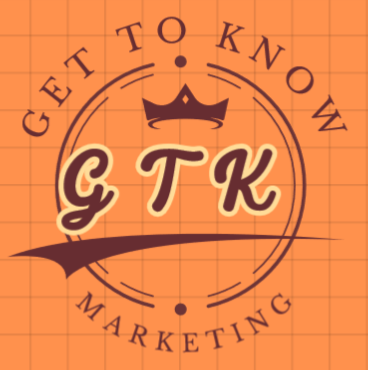In the rapidly evolving world of artificial intelligence, the ability to mimic human reasoning is a significant leap forward. Microsoft, a leader in AI innovation, is at the forefront of this advancement through its Azure AI platform. By integrating advanced reasoning capabilities into its AI services, Microsoft is enabling businesses to tackle complex tasks that traditionally required human cognitive abilities. This blog post will explore how Microsoft is achieving this and provide examples of its impact across various industries.
The Evolution of AI: From Data Processing to Human Reasoning
Artificial intelligence has come a long way from its early days of basic data processing and pattern recognition. Today’s AI systems are not just about crunching numbers or recognizing images—they are about understanding context, drawing inferences, and making decisions that mimic human reasoning. Microsoft’s Azure AI platform embodies this evolution, bringing a new level of sophistication to AI services.
Cognitive Services with Reasoning Capabilities
One of the key components of Azure AI is its suite of Cognitive Services, which provides pre-built AI models that businesses can integrate into their applications. These services now include reasoning capabilities that allow the AI to process information in a more human-like manner. For example:
- Legal Industry Application: A legal firm can leverage Azure’s Text Analytics and Knowledge Mining services to analyze large volumes of legal documents, identify relevant information, and draw connections between different data points. The AI can then suggest potential legal strategies, effectively performing tasks that would typically require a human lawyer’s reasoning.
Decision-Making Models Enhanced by Reasoning
Azure AI also offers machine learning models designed to assist in decision-making processes by incorporating reasoning. These models can evaluate multiple factors, consider potential outcomes, and make informed recommendations. A practical example of this is:
- Supply Chain Optimization: In supply chain management, an AI-powered model can reason through factors such as inventory levels, lead times, demand forecasts, and supplier reliability. This reasoning allows the AI to recommend the most efficient stocking strategy, reducing both excess inventory and the risk of stockouts.
Conversational AI with Contextual Understanding
Microsoft’s Azure Bot Service takes conversational AI to the next level by enabling bots to understand the context and nuances of human conversations. This contextual understanding is crucial for reasoning, as it allows the AI to maintain coherent dialogues, make inferences, and provide more relevant responses. Consider the following scenario:
- Customer Service Chatbots: A customer service chatbot using Azure Bot Service can handle complex inquiries by reasoning through previous interactions, the customer’s history, and the specific context of the current conversation. For example, if a customer inquires about a refund status after mentioning a previous issue, the bot can infer the connection between the two and provide a more informed response.
Custom AI Models with Human-Like Reasoning
Azure AI allows businesses to build custom AI models that incorporate reasoning capabilities tailored to specific industries or use cases. These models can analyze data, make predictions, and simulate human reasoning processes to tackle specialized tasks. For instance:
- Healthcare Diagnostics: In the healthcare industry, a custom AI model can assist doctors in diagnosing complex medical conditions. The AI can reason through a patient’s symptoms, medical history, and relevant medical literature to suggest possible diagnoses and treatment options, supporting doctors in making more informed decisions.
Integration with Knowledge Graphs
The reasoning capabilities of Azure AI are further enhanced by its integration with Knowledge Graphs, which store and process structured data in a way that mirrors human cognitive processes. This allows AI systems to understand relationships between data points and draw logical inferences. A real-world application includes:
- Financial Services Analysis: In financial services, an AI model integrated with a knowledge graph can analyze market trends, economic indicators, and historical data to reason about potential investment opportunities or risks. The AI can suggest strategies that align with a company’s financial goals while considering a broad array of influencing factors.
AI-Powered Decision Support Systems
Microsoft is also developing AI-powered decision support systems that go beyond simple data analysis to incorporate reasoning and logic. These systems help businesses navigate complex scenarios by providing recommendations based on comprehensive data analysis and reasoning. An example of this is:
- Disaster Management Planning: In disaster management, an AI decision support system could be used to plan responses to natural disasters. By reasoning through weather patterns, resource availability, and historical data on disaster impacts, the AI can recommend optimal evacuation routes, resource allocation strategies, and emergency response plans.
The Future of AI with Human Reasoning
As AI continues to evolve, the integration of human-like reasoning will become increasingly sophisticated, enabling businesses to leverage AI for an ever-widening array of applications. Microsoft’s Azure AI platform is leading this charge, offering businesses the tools they need to implement AI solutions that are not just intelligent but also capable of reasoning like a human.
Conclusion
The integration of human reasoning into AI services represents a significant advancement in artificial intelligence, and Microsoft’s Azure AI platform is at the cutting edge of this transformation. By enabling businesses to tackle more complex tasks, optimize processes, and improve decision-making, Microsoft is paving the way for a future where AI systems can reason, understand, and act with a level of sophistication that was once the sole domain of humans. As these technologies continue to develop, the potential applications and benefits will only expand, making AI an even more powerful tool for businesses across industries.
